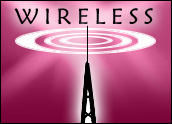
International business travelers will be able to access the Internet for a flat monthly fee through more than 100,000 wireless hotspots around the world under a new service announced Monday by Boingo Wireless.
Boingo, a Santa Monica, Calif.-based aggregator of WiFi networks, said its new service will cost 29 euros, or US$39, per month for unlimited Internet access from any hotspot affiliated with the company, which has 27,000 hotspots in North America, 23,000 in Asia and 51,000 in Europe.
A similar flat-rate plan for $22 a month has been offered for some time to users of the company’s North American hotspots, according to Boingo Marketing Director Christian Gunning.
Global Road Warriors
“Who this product is targeted at is the business traveler who has a lot of international travel as part of their schedule,” Gunning told TechNewsWorld.
“At the going rate for WiFi in Europe,” he continued, “the ability to move from country to country with a single account and not incur additional roaming fees is a significant step forward for those users.”
Gunning sees the hotspot industry trending toward flat rates and away from time-based schemes.
“Internet access has always migrated toward flat rates,” he said. “Customers don’t really like watching the clock while they’re onliine.”
Since Boingo launched in 2001, it has offered a flat rate for North American subscribers, he noted, but has metered international usage at rates ranging from 12 to 25 cents per minute, depending on the hotspot’s country location.
“We’ve reached the point in the marketplace where people are looking more toward a flat rate product as they move internationally, and I think the market has evolved to that point as well,” he opined.
Changing Market
With market evolution comes competitive pressures, which may have played a role in Boingo’s latest offering, according to George Strouthopoulos, chairman and CEO of Icoa, a WiFi provider with some of its networks plugged into Boingo.
As a subscription-based service, Boingo has two goals: keep existing customers happy to minimize churn and acquire new customers, he said.
Faced with competition, what does a service like Boingo do to meet those goals? “Come out with a flat rate and give them all they can eat,” Strouthopoulos told TechNewsWorld.
“This is a positive step,” he added. “It’s a good ploy. It puts them in the front line.”
More Lettuce for Partners
The new flat rate could drive more people to use Boingo, since every time a Boingo subscriber uses an Icoa network to access the Internet, Icoa gets a piece of the action. “The more customers that Boingo has, the better it is for us,” he said.
That will be true for all Boingo’s network partners, maintained Gunning.
“By providing this combined value for users, we can put more people on our partners’ networks, we can generate more revenue for them and help them drive a much healthier business,” he reasoned.
Avoiding the Little Guy
Trying to capture international road warriors on a one-to-one basis may be difficult for Boingo, especially in the face of competition from outfits like iPass.
Unlike Boingo, iPass sells its global flat rate services directly to corporations. Then the corporations can dole out the accounts to their international business travelers, who have unlimited Internet access at the some 80,000 worldwide hotspots affiliated with iPass.
“Boingo attempts to sign an individual, who is also a road warrior, to sign up with them with a credit card,” Rick Bilodeau, senior director for corporate marketing at iPass, explained to TechNewsWorld. “We work to sign a contract with the company that the road warrior works for.”
Under a typical contract, a block of flat-rate accounts are sold to a company. The accounts include dial-up, hotel Ethernet and WiFi hotspot access and range in monthly price from $39 for U.S.-only access to $55 for international access. Those prices, though, are prorated downward depending on the volume of users.
The iPass model is attractive to both road warriors and their companies, contended Bilodeau.
“You don’t have to do expense reports or justify the expense to your boss,” he observed. “And the company can negotiate a better rate for a volume of users than an individual can just going to a provider.”











































